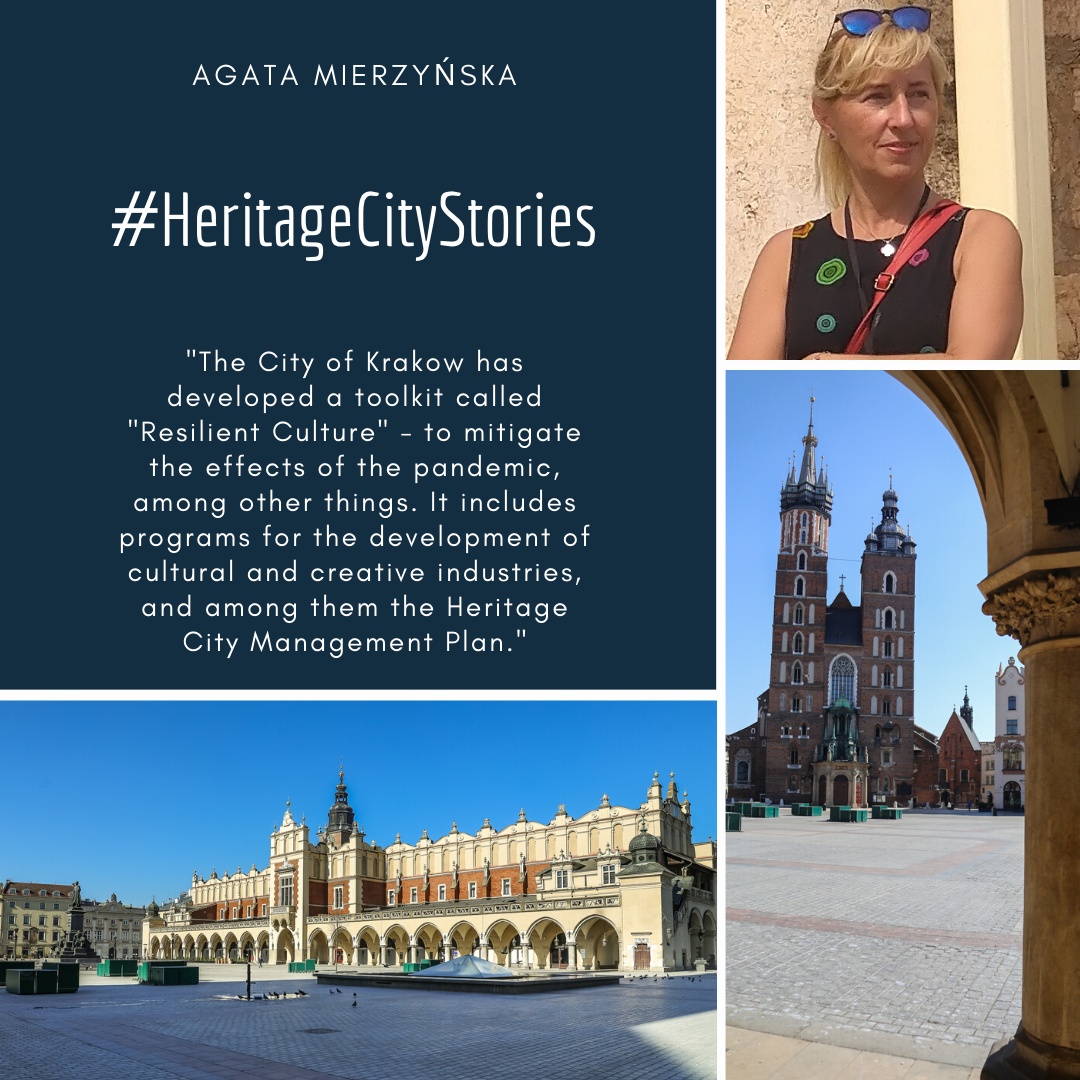Gyeongju
République de Corée
Agata Mierzynska – Krakow (Poland)

#HeritageCityStories
Appreciate
11 months ago, during the OWHC Congress in Krakow, overtourism was one of the challenges of historical cities. Thousands of tourists in our city, pictures of crowded Florence, Venice and many other cities in the world illustrated this problem, and in the speech of the charismatic Mayor of Dubrovnik many mayors found their own concern about how to preserve the local landscape, important places and addresses, how to limit the gentrification of historical districts, how to build respect for both residents and tourists. Also the tourist harbor towns cooperated to create strategies to counteract the effects of tourism, symbolized by the huge cruisers. As late as March 11th this year – only two months ago! – during the last conference in Krakow “Historical Cities 3.0”, the offer for the premium tourist, desired by all tourist towns, was discussed. Would anyone then believe that a month later the streets of cities, including the historic ones, visited by millions of tourists, and the world’s most famous historic sites such as Wawel Royal Castle, Piazza di San Marco, Palazzo Uffizi, Plaza de la Constitución, Red Square will be completely deserted?
No. And yet this is happening. We’ve never seen our cities so empty, so quiet. We used to complain that we couldn’t focus on their beauty, contemplate in peace the atmosphere and the mysteries of history. Now we can. But now empty squares of our historic cities evoke completely different thoughts, fears and challenges. They shout with emptiness and silence. The lack is overwhelming and oppressive. Lack of tourists, lack of energy of the crowd and joy of life, but also lack of consumption and absence of customers, no possibility to save prosperity and avoid bankruptcy. Closed borders, hygienic distances between people, absence of friends has very strong impact on our emotions. The pandemic has affected all of us, changed the reality, fears, perspectives, challenges and goals. We have to face them; we also have to prepare ourselves for what we do not yet expect or just can’t imagine.
Discussions, conferences, meetings have moved into the virtual sphere. Apart from debates on general issues such as: localism vs. globalism, there are also practical discussions on how to mitigate the effects of the pandemic and forums for the exchange of good practices and initiatives in various areas of our lives. It not only gives practical help, but also strengthens the sense of community, giving a substitute for presence, working together.
The City of Krakow has developed a toolkit called « Resilient Culture » – to mitigate the effects of the pandemic, among other things. It includes programs for the development of cultural and creative industries, and among them the Heritage City Management Plan – an interdisciplinary two-year program related to the management of the historical area in accordance with UNESCO guidelines, to be developed in a participatory model. This is a concrete plan that allows to focus on acting with a view to the future, and therefore with hope and faith. Without doubt, we also need emotional support, a sense of community and social solidarity. It is expressed in a social campaign presented on the streets of Krakow – at over 200 public transport stops: « Unlike always – like always together », where artists and writers through their works full of good energy, support residents in their everyday life of lockdown. Another initiative, based on the principles of participation, addressed to all residents of Krakow, which aims to support local entrepreneurs is: « Be a tourist in your city – visit Krakow ».
The Internet enables us to reach the furthest corners of the globe – we can visit the cities, admire the most famous masterpieces in galleries around the world, listen to concerts and attend theatre performances. This must be enough for a while. But I believe that the time of closed doors will be over in the near future. I also hope that we will come out of this trial – a very expensive one – stronger, more connected and sensitive to each other. And hopefully we will not waste this effort, the huge price paid by all those who lost the most as a result of this epidemic.
And … #KrakowWillWait and « The City Will Wait » – in line with the title of another campaign, recently announced by Krakow and many Polish cities, encouraging tourists to visit cities and travel after lifting restrictions, to celebrate openness, curiosity and passion for travel.
Maybe because I work for the International Relations, and my work is based on interpersonal contacts where so much depends on the relationship – with gratitude for the opportunity to meet, cooperate and exchange good practices, online and electronic media meetings – but I do look forward to a return to normality, to a new normality even, to end isolation and disconnection. Nothing can substitute the value of the physical presence of another person.


